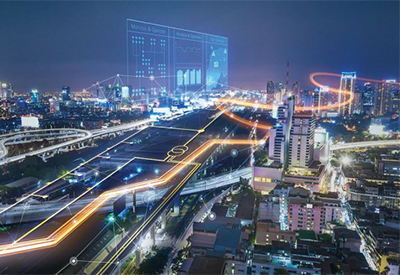Siemens Releases Mississauga Infrastructure Projections & Findings to Reduce Emissions

July 17, 2019
Siemens, in conjunction with the City of Mississauga, published Mississauga’s Climate Future: Technology Pathways to a Sustainable Future in 2050 identifying potential measures to achieve an 80 per cent reduction in greenhouse gas emissions by 2050 (80×50) relative to 1990 across all greenhouse gas (GHG) emissions sectors.
This analysis paves the way for the City to consider adopting 80×50 as a GHG emission reduction target as part of the upcoming Climate Change Action Plan. The City’s Climate Change Action Plan will provide a roadmap for Mississauga to mitigate and adapt to the impacts of climate change.
“Siemens analyzed the City’s infrastructure data through our City Performance Process using a data-driven tool that allows cities to make informed infrastructure decisions, through the lens of the sustainability goals. The analysis found that the City would need to transition to 100 per cent generation of renewable electricity and 62 per cent passenger travel by transit and active transportation to achieve its goals,” stated Martin Powell, Global Head of Urban Development for Siemens. “In addition to the current policies already in place, the implementation of 25 infrastructure technologies impacting energy, building and transportation sectors would also be necessary to achieve an emission’s reduction goal of 80 percent by the year 2050.”
In addition to a greener grid, addressing improvements to the efficiency of heating demands in buildings also needs to be a priority. Currently, space and water heating consumes 83 per cent of the total energy usage in residential buildings and 58 per cent in commercial and municipal buildings in Mississauga. This provides a huge opportunity for emissions reduction, which has been addressed by modeling two solutions in the analysis – Combined Heat and Power (CHP) and air-sourced heat pumps. Together, these solutions have the potential to reduce GHG emissions by over 2.6 million metric tons or 38 per cent compared to a 2050 business-as-planned scenario.
The findings from the Technology Pathways to a Sustainable Future report are being used in the development of the City’s first comprehensive Climate Change Action Plan.









![Guide to the Canadian Electrical Code, Part 1[i], 26th Edition– A Road Map: Section 56](https://electricalindustry.ca/wp-content/uploads/2022/11/Guide-CE-Code-2.png)






